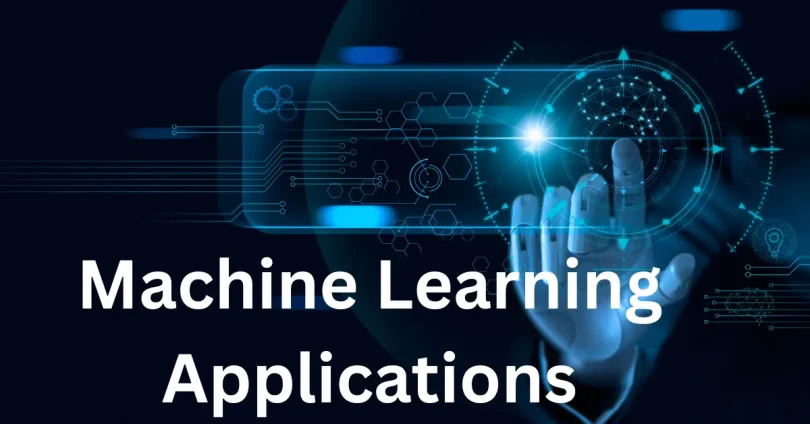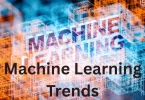From predicting customer behavior to enhancing medical diagnoses, artificial intelligence has evolved rapidly—and at the heart of this transformation lies a game-changing technology: machine learning applications. These applications are no longer just part of futuristic dreams; they are actively shaping industries, driving innovation, and unlocking new levels of efficiency.
Whether you’re a tech enthusiast, business owner, student, or simply curious about how machines are learning to think like us, this article will walk you through the most exciting, cutting-edge uses of machine learning today and beyond.
What Are Machine Learning Applications?
Understanding the Basics
- Machine learning is a subset of AI where systems learn from data to make decisions.
- Applications are built to solve real-world problems by training models on historical data.
- They become smarter over time without being explicitly programmed.
Key Components Involved
- Algorithms (e.g., decision trees, neural networks)
- Training data (structured/unstructured)
- Features and labels for supervised learning
- Evaluation metrics (accuracy, precision, recall, etc.)
Machine Learning Applications in Healthcare

Medical Imaging and Diagnostics
- ML helps in detecting diseases like cancer, tuberculosis, and brain anomalies with high accuracy.
- Google’s DeepMind can now detect over 50 eye diseases better than human doctors.
Personalized Treatment Plans
- Algorithms analyze genetic information and medical histories to create customized treatment paths.
- IBM Watson Health recommends cancer treatments based on medical literature and patient data.
Predictive Analytics
- Predicting patient deterioration in ICUs
- Managing chronic diseases like diabetes
- Forecasting hospital readmissions
Machine Learning Applications in Finance
Fraud Detection
- Real-time transaction monitoring with ML detects anomalies and flags fraud instantly.
- Algorithms like Isolation Forests and Autoencoders are common in fraud detection.
Algorithmic Trading
- ML models predict stock price movements based on historical data and market sentiment.
- Hedge funds use it to automate trading decisions with minimal human input.
Risk Assessment and Credit Scoring
- Machine learning models evaluate creditworthiness using alternative data like phone usage and social behavior.
- Fintech companies use ML to provide loans to previously unbanked populations.
Machine Learning Applications in Retail
Personalized Shopping Experiences
- Recommendation engines suggest products based on browsing behavior and purchase history.
- Amazon and Netflix use collaborative filtering and content-based algorithms.
Inventory Management
- Predicting demand to optimize stock levels
- Reducing waste and storage costs
- Dynamic pricing models for revenue optimization
Customer Service
- Chatbots and virtual assistants use NLP to handle customer queries.
- Sentiment analysis helps in understanding customer feedback and improving service.
Machine Learning Applications in Transportation
Autonomous Vehicles
- Self-driving cars from Tesla and Waymo use ML to process data from sensors and make real-time driving decisions.
- Includes lane detection, pedestrian recognition, and adaptive cruise control.
Route Optimization
- Apps like Google Maps use historical and real-time traffic data to find the best routes.
- Reduces fuel consumption and improves delivery efficiency.
Predictive Maintenance
- ML identifies patterns in vehicle data that predict when parts will fail.
- Prevents breakdowns and saves maintenance costs.
One read, and you’ll see things differently!
Epic New Tech Launches That Will Leave You Speechless
Explore Future Technology Trends That Will Shape Tomorrow
Tech Events 2025 That Will Blow Your Mind
Unbelievable Breaking Tech Stories You’ll Love
Machine Learning Applications in Education
Intelligent Tutoring Systems
- Platforms like Duolingo adapt lessons based on the learner’s pace and performance.
- Real-time feedback and customized learning paths enhance student engagement.
Predictive Analytics for Student Success
- Universities use ML to identify at-risk students and intervene early.
- Factors like attendance, grades, and participation are analyzed for early warnings.
Automated Grading and Assessments
- Algorithms grade essays and quizzes, reducing teacher workload.
- Ensures unbiased and consistent evaluation.
Machine Learning Applications in Marketing
Customer Segmentation
- ML clusters customers based on behavior, demographics, and preferences.
- Enables highly targeted marketing campaigns.
Sentiment Analysis
- Tools like MonkeyLearn analyze social media and reviews to gauge public opinion.
- Helps brands align their messaging with customer sentiment.
Lead Scoring and Conversion Prediction
- ML predicts which leads are more likely to convert.
- Optimizes sales team efforts and improves ROI.
Machine Learning Applications in Cybersecurity

Threat Detection and Prevention
- ML monitors network activity to detect unusual behavior.
- Identifies malware, phishing attacks, and ransomware threats.
User Behavior Analytics
- Learns normal user behavior to detect anomalies that suggest insider threats.
- Helps prevent unauthorized access.
Spam and Malware Filtering
- Email providers use ML to detect spam, phishing, and harmful links.
- Continuously updated based on new threats.
Emerging Machine Learning Applications
Climate Modeling and Environmental Monitoring
- ML helps model climate change scenarios and predict natural disasters.
- Satellite imagery analysis for tracking deforestation and pollution.
Legal and Judicial Systems
- Algorithms analyze case histories to assist judges in making fairer decisions.
- Predictive models for case outcomes and recidivism risks.
Agriculture and Food Security
- Precision farming uses sensors and ML to optimize planting, irrigation, and harvesting.
- Crop disease prediction and yield estimation improve food security.
Future Trends in Machine Learning Applications
Explainable AI (XAI)
- Making ML decisions transparent and understandable
- Critical in healthcare, law, and finance where trust is essential
Edge Computing Integration
- Running ML models directly on devices
- Enables faster, real-time decisions with lower latency
Federated Learning
- Training models across decentralized devices without sharing data
- Enhances privacy and data security
Ethical Concerns and Challenges
Data Privacy
- Collecting and using data responsibly
- Compliance with GDPR and other data protection laws
Bias and Fairness
- Training data must be diverse and unbiased
- Constant evaluation needed to prevent discrimination
Job Displacement
- Automation could replace certain jobs
- Upskilling and reskilling programs needed to prepare the workforce
Conclusion
As we continue to explore and implement machine learning applications, the world around us transforms in ways that were once only imaginable. From smarter healthcare systems to intuitive marketing campaigns and self-driving cars, machine learning is not just reshaping industries—it’s redefining our everyday lives. As this technology evolves, staying informed about its capabilities, trends, and ethical implications will be essential for harnessing its full potential in a responsible and impactful way.
FAQs
What are machine learning applications?
Machine learning applications are technologies that use algorithms to enable systems to learn from data, make predictions, and improve over time without explicit programming. These applications span various industries like healthcare, finance, marketing, and more.
How does machine learning work in everyday life?
Machine learning impacts daily life in ways like personalized recommendations on streaming platforms, voice assistants like Siri and Alexa, and even fraud detection in banking apps. It analyzes data and adapts to user behavior for improved experiences.
What industries benefit most from machine learning?
Industries such as healthcare, finance, retail, and manufacturing benefit significantly from machine learning. It helps them automate processes, enhance customer experience, predict trends, and optimize operations for better outcomes.
What are some challenges in implementing machine learning?
Implementing machine learning can be challenging due to the need for quality data, skilled professionals, high computational power, and ensuring ethical use. Additionally, training models and managing the complexity of algorithms can be difficult.
Will machine learning replace human jobs?
While machine learning automates certain tasks, it is unlikely to fully replace human jobs. Instead, it is expected to work alongside humans, improving efficiency, enabling better decision-making, and creating new job opportunities in technology and data fields.





